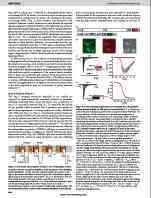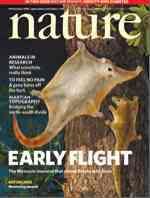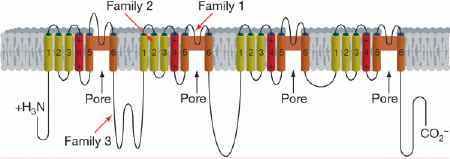Guest Post by Imran Nasrullah

 Recently, the New York Times reported on the case of a 10-year old boy from Lahore who could perform remarkable feats – like walking on burning coals and passing knife blades through his arm – without exhibiting any sign of pain. According to the NYT:
Recently, the New York Times reported on the case of a 10-year old boy from Lahore who could perform remarkable feats – like walking on burning coals and passing knife blades through his arm – without exhibiting any sign of pain. According to the NYT:
Geneticists following up the case of a 10-year old Pakistani boy who could walk on coals without discomfort have discovered a gene that is central to the perception of pain. The boy lived in Lahore, Pakistan, and was well known to the city’s medical authorities because he would come to the clinic asking to be patched up after his street theater. In these exhibitions, he would pass knives through his arms and walk on burning coals without feeling pain.
A research team led by C. Geoffrey Woods, a physician at the Cambridge Institute for Medical Research in Cambridge, England, reports in the journal Nature that team members have identified a genetic defect in some of the boy’s relatives who are also unable to feel pain. The defect inactivates a gene that is critical to the body’s perception of pain. The gene is obviously an attractive new target for drug developers seeking to eliminate pain.
Researchers following up met other members of this family (the Quereshis) in Pakistan comprising individuals with this same unique ability: “None knew what pain felt like, although the older individuals realized what actions should elicit pain,” say researchers.
It turns out members of this clan have a key mutation in the gene SCN9A (located on chromosome 2-specifically, chromosome 2q24.3) that totally blocks the perception of pain. SCN9A encodes for a sodium channel receptor that regulates. It has been known that a different mutation in the same gene produces the opposite feeling- an intense searing sensation responsive to mild warmth- known as Burning Man’s Syndrome. To be immune from pain, requires inheritance of a single copy of the mutation from both parents (homozygous recessive), a phenomenon more likely to occur in clan based societies where intermarriage among the clan is frequent.From a pharmacoeconomic perspective, this discovery is huge as pain management for back pain alone consumes 20% of US health costs and 1.5% of US GDP! Drug developers could start generating new medicines- agonist[s] specific for this subunit might act as a ‘total analgesic’ with no side effects – thereby, better managing pain.
Let’s hope that drug companies capitalizing on this discovery will make such medicines affordable to those in poor countries who live with pain without recourse.
Imran Nasrullah heads business development and IP liscensing at a pharmaceutical company in the United States.




















































Imran thank you for the post. i will go throught the originl paper once i am done with this comment. All i wanted to say is that future is not so bleak for us Pakistanis, especially considering expetriates who are doing a great dela for their country.
The only need is for a combined effort. It is rather interesting that a blog could lead to any such partnership between different minds and culminate into a useful product for Pakistan.
For doing research we need resources. but more important is the fact that we need human resources. And i think we lack in this area. I would urge all Pakistani expats to do their part in helping other Pakistanis get more education abroad and even in Pakistan. Sonn then will we be able to build a team out of an idea from a blog InshaAllah.
I’m so glad that this article was published. I’m at undergraduate at Columbia, who is seriously interested in biotechnology, drug and research. I also have a deep love for my country and the thoughtful comments people have posted have given me something to explore-
My other thought really goes to bioethics and economics. I would like to see drug companies that prosper on genetic information endemic to local populations make novel drugs available to the population. DeCode Genetics is an Icelandic company that mines gene information from the local population. “In return for the nation’s DNA, deCODE will supply Iceland with any drugs developed from the database free of charge. In a similar deal, Gemini has agreed to pay royalties on any commercial developments from its database to a foundation for the benefit of the people of Newfoundland and Labrador.”(New Scientist 2000 (19 February); 165 (2226): 3)
One wonders, if someday Pakistan can harness its brain power and private capital resources (that seems to be where the wealth is tied up) to spin up its own biotechnology company to find new medicines based on gene variability endemic to Pakistan (I recall that a baldness gene was found in Pakistan as well)to positively contribute to the healthcare of society. While the brain power exists, it seems the larger percentage is among the diaspora because of the brain drain. Interestingly, I read/heard that many Indians in the pharmaceutical sector living abroad are returning to India to start up their own biopharmaceutical companies. India’s change in its patent laws to accomodate protection of pharma products (drugs) and the intellectual capital of its diaspora are making a return home attractive. Can Pakistan pull the same thing off?
Interesting conversations…I have many thoughts on this story, from the human to the economic. For one, I think it is in our nature to be fascinated with human “freak” shows as evidenced by carnivals throughout history that featured dog boys, severely obese people, siamese twins, etc. which can be attributed to genetic error. The poor Lahori boy who died by falling off a building- I am reading between the lines- but likely to demonstrate his immunity from pain is poignant as most of us who have boys or remember our own antics growing up can attest to reckless behaviour because of the feeling of invincibility. In the case of the boy who truly felt no pain, as he must have felt truly invincible. His seeming invincibility fed the human fascination for the freakshow, hence, his increasingly dangerous conduct. Perhaps, a perverse example of supply and demand.
Very interesting news. Do people know about the state of genetic research in Pakistan or by Pakistanis? I heard that with IT it is one of the areas that HEC is concentrating on. Is there any real headway? Especially in institutions in Pakistan?